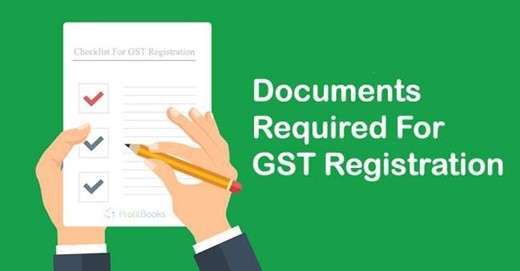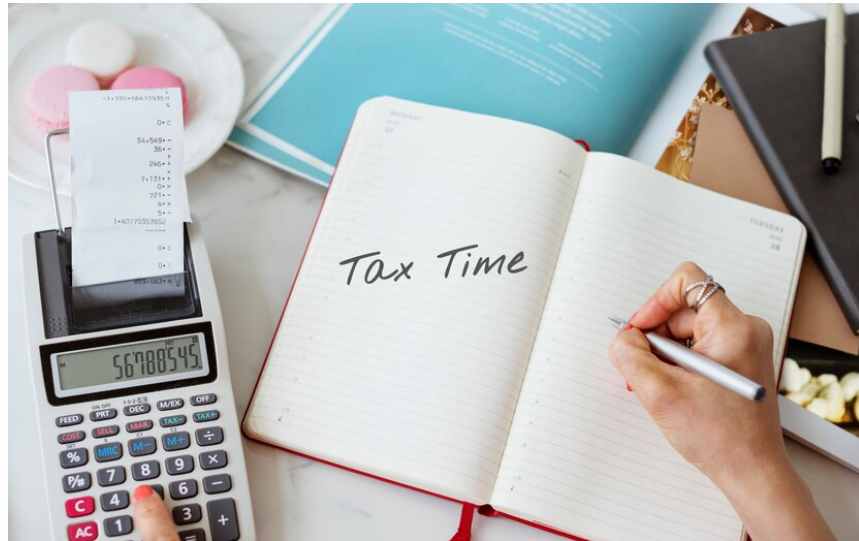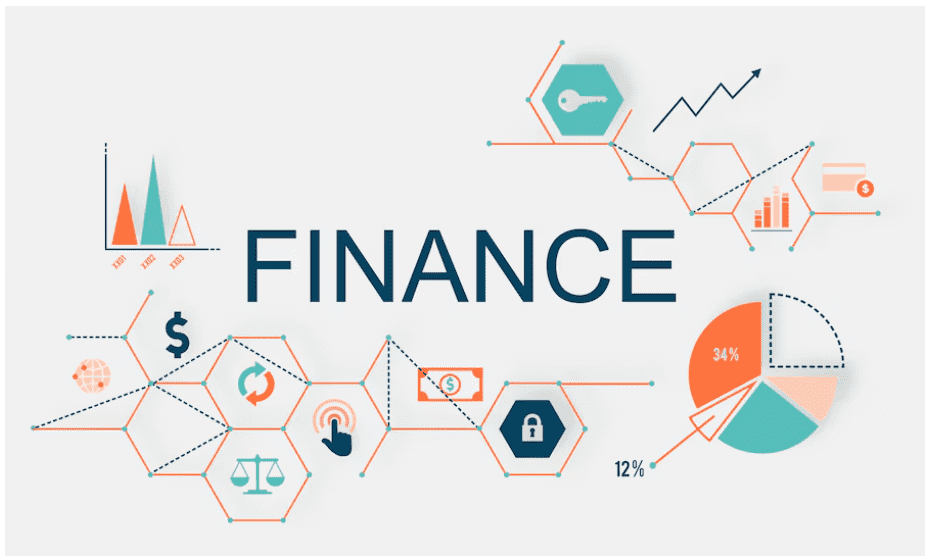
Documents Required for GST Registration: A Comprehensive Guide
Goods and Services Tax (GST) has been a game-changer for businesses in India since its implementation in 2017. If you're a business owner looking to register for GST, you've come to the right place. This comprehensive guide will walk you through all the documents required for GST registration, ensuring a smooth and hassle-free process.
Why is GST Registration Important?
Before we dive into the specifics, let's quickly touch on why GST registration is crucial for businesses:
- Legal compliance
- Ability to collect GST from customers
- Input tax credit benefits
- Expanded business opportunities
Now, let's explore the documents you'll need to have ready for your GST registration.
Basic Documents Required for All Businesses
Regardless of your business structure, you'll need the following documents:
1. PAN Card
Your Permanent Account Number (PAN) card is the foundation of your GST registration. Ensure that your PAN details are up-to-date and match the information you'll provide during registration.
2. Aadhaar Card
The Aadhaar card of the business owner or authorized signatory is required for authentication purposes. This helps in verifying the identity of the person applying for GST registration.
3. Business Registration Document
Depending on your business structure, you'll need to provide one of the following:
- Sole Proprietorship: No specific document required, but you may need to submit a bank statement or utility bill as proof of business address
- Partnership Firm: Partnership deed
- Limited Liability Partnership (LLP): LLP agreement
- Private Limited Company: Certificate of Incorporation and Memorandum of Association (MoA)
- Public Limited Company: Certificate of Incorporation, MoA, and Articles of Association (AoA)
4. Proof of Business Address
You'll need to submit a document that proves your business address. This can be:
- Property tax receipt
- Municipal khata copy
- Electricity bill (not older than two months)
- Legal rent agreement
- NOC from the property owner
5. Bank Account Proof
Provide a cancelled cheque leaf or bank statement of the business account. This is crucial for verifying your banking details and for future GST-related transactions.
Additional Documents Based on Business Type
Depending on your business structure and nature, you may need to submit additional documents:
For Partnerships and LLPs
- Authorization letter for authorized signatory
- Photographs of partners/designated partners
For Private and Public Limited Companies
- Board resolution authorizing a person to act as authorized signatory
- Photographs of directors and authorized signatory
- Copy of the Certificate of Incorporation
For Associations of Persons (AOP) or Body of Individuals (BOI)
- Proof of constitution of AOP/BOI
- Authorization letter for authorized signatory
- Photographs of members of AOP/BOI
Special Cases and Additional Requirements
1. For Casual Taxable Person
If you're a casual taxable person (someone who occasionally undertakes business transactions in a state where they don't have a fixed place of business), you'll need:
- Proof of principal place of business
- Bank account details
- Estimated turnover and tax liability declaration
2. For Non-Resident Taxable Person
Non-resident taxable persons (those supplying goods or services to India without a fixed place of business in the country) need to provide:
- Passport and visa details
- Tax identification number in the home country
- Bank account details of the Indian business associate
3. For Input Service Distributors (ISD)
ISDs need to submit:
- Proof of distribution of input service credit
- List of recipients of credit distribution
4. For E-Commerce Operators
If you're running an e-commerce platform, you'll need to provide:
- Proof of software/platform ownership or authorization to use
- List of suppliers using your platform
Digital Signature Certificate (DSC)
For certain types of businesses, a Digital Signature Certificate is mandatory for GST registration:
- Public and Private Limited Companies
- Limited Liability Partnerships
- Foreign Companies
If your business falls under these categories, ensure you have a valid DSC before starting the registration process.
Photographs
Recent passport-sized photographs of the following individuals are required:
- Proprietor (for sole proprietorship)
- Partners (for partnership firms)
- Designated partners/authorized person (for LLPs)
- Managing director, directors, and authorized signatory (for companies)
Additional Documents for Specific Scenarios
1. For SEZ Units or Developers
- Letter of approval from the concerned authority
2. For Government Departments
- Order of appointment of the head of the department or his delegate
3. For UN Bodies or Embassies
- Proof of establishment in India
Preparation Tips for Smooth GST Registration
- Organize Your Documents: Create a checklist and gather all required documents before starting the registration process.
- Verify Information: Double-check all details on your documents to ensure consistency across all paperwork.
- Scan Documents: Have clear, legible scans of all documents ready in the correct format (usually PDF or JPEG).
- Keep Originals Handy: While you'll be uploading scanned copies, keep the originals accessible in case of verification requests.
- Stay Updated: GST rules and requirements may change. Always check the official GST portal for the most up-to-date information.
- Seek Professional Help: If you're unsure about any aspect of the registration process, consider consulting a GST expert or chartered accountant.
Conclusion:
Navigating the GST registration process can seem daunting, but with proper preparation and the right documents, it can be a smooth experience. By following this comprehensive guide and ensuring you have all the necessary paperwork in order, you'll be well on your way to successfully registering for GST and unlocking the benefits it offers for your business.
Remember, GST registration is not just a legal requirement but also a stepping stone to expanding your business horizons. It opens up opportunities for seamless inter-state trade and positions your business for growth in the unified Indian market.
As you embark on your GST registration journey, keep this guide handy, stay organized, and don't hesitate to seek professional assistance if needed. With the right approach and documentation, you'll soon join the ranks of GST-registered businesses, ready to thrive in India's dynamic economic landscape.
Documents Required For GST Registration In Short
FOR INDIVIDUAL, COMPANY & PARTNERSHIP FIRM :
- Aadhar Card of Applicant
- Pan Card of Applicant
- Passport Size Photo of Applicant
- Bank Account Front Page of Applicant
- Valid Mobile Number of Applicant
- Proof of Business Address (Electricity Bill etc)
- Rent Agreement (if shop on Rent)
- Firm Name
- PARTNERSHIP DEED
- DIRECTOR PAN
- MEMORENDUM OF CO.
FAQ on Documents Required for GST Registration:
1. What is GST registration?
GST registration is mandatory for businesses engaged in the supply of goods or services whose aggregate turnover exceeds the prescribed threshold limit. It's a process through which a taxpayer gets registered under the Goods and Services Tax regime and obtains a unique GSTIN (Goods and Services Tax Identification Number).
2. What are the essential documents required for GST registration?
The essential documents required for GST registration include:
- PAN card of the applicant
- Proof of constitution of business (partnership deed, certificate of incorporation, etc.)
- Identity and address proof of promoters/partners
- Address proof of the place of business
- Bank account details
- Digital signature (for certain categories of taxpayers)
- Authorized signatory details
- Photographs of promoters/partners
- Business registration certificate (if applicable)
- Additional documents as per the nature of the business activities
3. Why is PAN card necessary for GST registration?
The PAN card serves as an identity proof for the business entity and is a mandatory document required for GST registration. It helps in establishing the identity of the taxpayer and ensures compliance with tax regulations.
4. Can I use my Aadhaar card as proof of identity for GST registration?
Yes, you can use your Aadhaar card as proof of identity for GST registration. It is one of the accepted documents for verifying the identity of the promoters/partners of the business.
5. Do I need a digital signature for GST registration?
For certain categories of taxpayers such as companies and Limited Liability Partnerships (LLPs), obtaining a digital signature certificate (DSC) is mandatory for GST registration. However, it may not be required for all taxpayers depending on the nature of the business.
6. What if I don't have a business registration certificate?
If your business is not registered under any existing indirect tax laws such as VAT, Excise, or Service Tax, you may not have a business registration certificate. In such cases, you need to provide other relevant documents establishing the constitution of your business, such as a partnership deed or certificate of incorporation.
7. Can I register for GST without a physical place of business?
Yes, you can register for GST without a physical place of business if you are supplying services or goods through e-commerce platforms or are engaged in certain specified activities. In such cases, you need to provide alternative documents as proof of your business address.
8. How long does it take to complete the GST registration process?
The time taken to complete the GST registration process varies depending on factors such as the accuracy of the information provided, the completeness of the documents submitted, and the processing time by the tax authorities. Generally, it takes a few working days to obtain GST registration once the application is submitted online.
9. Can I make changes to my GST registration details after obtaining registration?
Yes, you can make changes to your GST registration details such as address, contact information, and authorized signatory details through the GST portal. However, certain changes may require approval from the tax authorities.
10. Is there any fee for GST registration?
No, there is no fee for GST registration. It is free of cost. However, if you seek assistance from a GST practitioner or a facilitation center for the registration process, they may charge a fee for their services.

Author : Uttam Bisht
08 February, 2024 | 09:37 PM
Mr. Uttam Bisht is a partner with the Delhi Branch of the firm. He has more than 8 years of experience and specializes in Statutory Audit. Expertise in Tax audit of various enterprises. Extpertise internal audit of Private enterprises. Audit planning through business understanding, preliminary analytical procedures, determining materiality levels, and preparation of audit program and pre-audit checklist . He is well conversant with the auditing standards issued by ICAI. .
Tags
Recent Blogs

06 February, 2026 | 07:28 AM
Decoding Union Budget 2026

13 May, 2025 | 07:42 AM
Top 5 Tips for Filing ITR 4 Easily

08 May, 2025 | 01:09 AM
Simple Guide to Filing ITR1 Sahaj

30 April, 2025 | 05:51 AM
Mortgage Rates Today

26 April, 2025 | 10:23 PM
How Bank's are scamming you - Fixed vs Reducing Rate

02 March, 2025 | 05:32 AM
15 Benefits of ITR Filing
Popular Blogs

14 February, 2024 | 11:43 PM
Top 15 ITR Filing Documents

21 March, 2024 | 12:29 AM
The Road to Financial Freedom: Leveraging Tax Services for Long-Term Success

27 February, 2024 | 11:20 PM
Why Filing ITR with No Income is Smart

14 February, 2024 | 11:39 PM
21 Ways to Save Tax From Salary

10 October, 2024 | 10:15 PM
Exploring the 15 Financial Websites You Should Bookmark Right Now

14 February, 2024 | 11:35 PM
